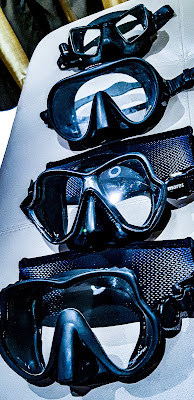Some tips for beginners!

As a SCUBA diving instructor, I have had the privilege of introducing countless people to the amazing world of scuba diving. Whether you're a beginner or a seasoned pro, there are always tips and tricks that can make your diving experience safer and more enjoyable. Here are some of my top SCUBA diving tips for beginners based on my personal experience: Get certified: The first and most important step in becoming a scuba diver is to get certified. This will not only give you the knowledge and skills to dive safely, but it will also give you peace of mind knowing that you are diving with the proper training and equipment. Look for a reputable diving school that offers a variety of courses, from beginner to advanced. Practice buoyancy control: Buoyancy control is one of the most important skills a diver can have. It allows you to move effortlessly through the water and avoid damaging coral reefs or other marine life. To practice buoyancy control, start by becoming comfortable with you...




